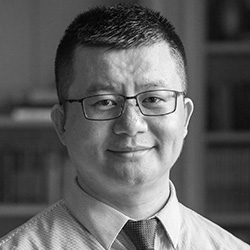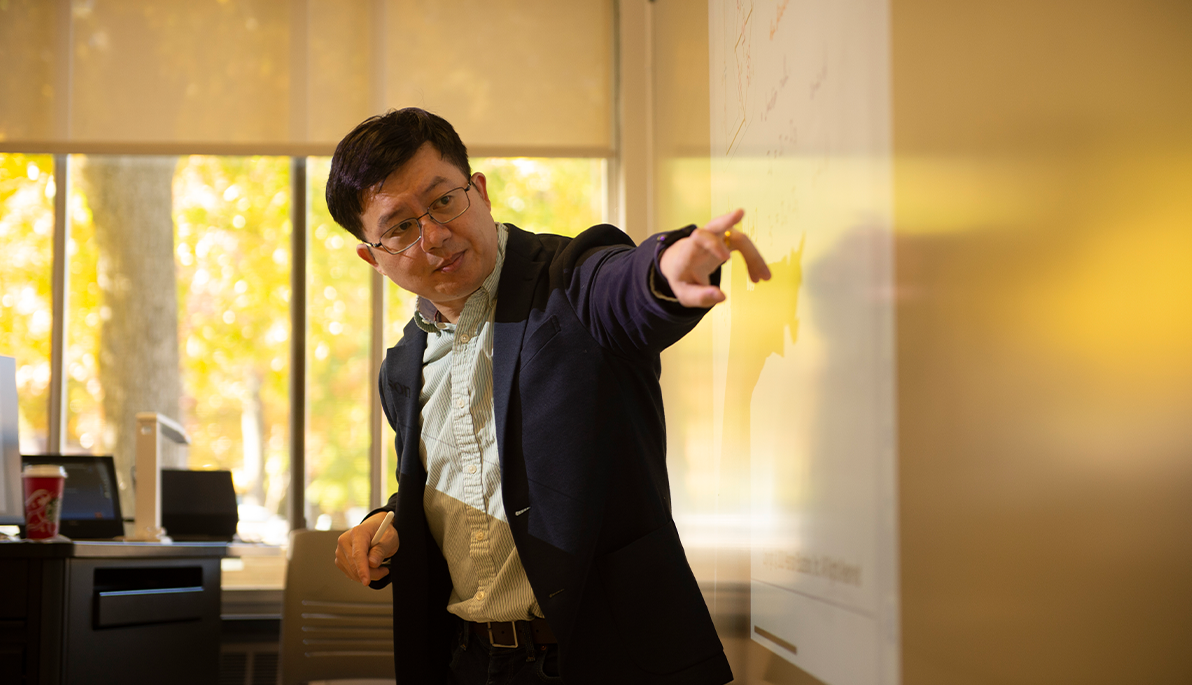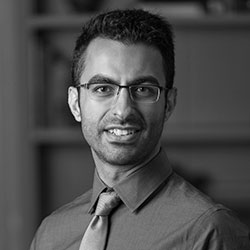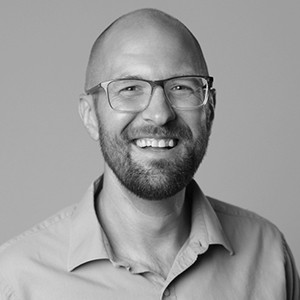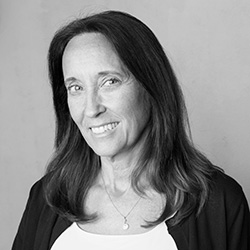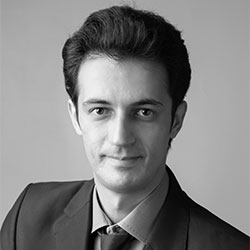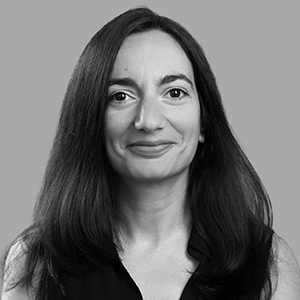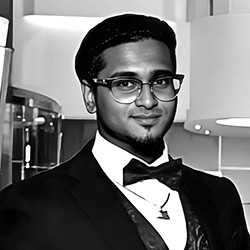Teaching Beyond the Classroom
Assistant Professor of Physics Yusui Chen, Ph.D., is a first-generation college student and the first in his family to earn a doctoral degree. The personal honor is not one he takes lightly, as he committed early in his academic career to becoming an educator so he may help students with backgrounds like his own. With a recently secured National Science Foundation (NSF) grant of $650,000 for a three-year project, he is well on his way.
The project, which could enhance understanding of quantum physics within real environments, also includes efforts to build a pipeline of diverse talent and researchers. Chen will mentor undergraduate New York Tech students, particularly those from traditionally underrepresented backgrounds. He will also conduct outreach to K–12 schools with the aim of introducing quantum concepts and sparking younger students’ interest in quantum information science and engineering.
“I pursued my Ph.D. in the United States because I wanted to challenge myself,” says Chen, who, after graduating from Nanjing University in China with his bachelor’s degree in physics, traveled to the United States to complete his studies by obtaining a Ph.D. in physics from Stevens Institute of Technology.
“I firmly believe that gaining a global perspective of the world ultimately enriches an individual, and this is the perspective I aim to instill in my students.”
Chen encourages this mindset even beyond his classroom. Between rounds of ping pong and sitting down with a good history book, he enjoys spending time with his family and giving back to the community. As a professor and a father to two young daughters, his preferred form of volunteerism is sharing his passion for physics with children.
Previously, he’s provided mini-lectures on math and physics to fifth- and sixth-grade students in New Jersey in their classrooms and local libraries. In addition, he has shared with middle and high school students his experience of learning physics and the road to becoming a physicist. Each year on campus, he recruits one high school student to work under his supervision in his research group. Next year, Chen plans to enlighten his daughter’s daycare with Quantum Physics for Babies by Chris Ferrie.
As he continues teaching lessons in the discipline inside and outside of New York Tech’s campus, Chen spoke to New York Tech News about his specific physics interests, his NSF grant, and the research he is performing on the Long Island campus.
What topics do you teach as part of your curriculum?
I teach introductory physics courses. In doing so, I strive to bridge physics and various majors, such as mechanical engineering, electrical engineering, computer science, biology, and more. My goal is to show students the practical applications of physics and how it affects their fields of study.
I believe that effective teaching begins when students actively engage and listen. For instance, when teaching series and parallel networks, I encourage students to collaborate in creating series or parallel networks within the entire class, pretending each of them is a resistor. This approach creates a funny and interactive class where students are excited to learn and actively participate in the learning process.
Congratulations on recently being awarded a grant from the NSF. Can you tell us about the project that received this prestigious funding?
This grant supports a necessary step to advancing the field of quantum computing. As systems grow larger and more complex, modeling their dynamics on classic, binary computers is unfeasible, requiring the use of quantum computers. But to understand the unknowns of how these quantum systems operate and uncover their full potential first requires an advanced understanding of the physics principles that provide their theoretical framework. My research team will establish a comprehensive method to investigate these dynamics while improving the accuracy of existing quantum simulation algorithms. Their insights could deepen understanding of the fundamental physics in which quantum computers operate.
Can you tell us what you are currently working on in your research pursuits?
My current research is centered around advancing quantum computing and quantum sensing to achieve higher levels of precision. Our current focus involves applying our developed theory to explore quantum entanglement dynamics within real-world environments, aiming to design the next generation of detectors, pushing the boundaries of precision even further.
Our ongoing research in quantum computing will continue to study environmental impacts relevant to different quantum systems to maintain our leading position in this field. In addition, we aim to strengthen interdisciplinary collaborations between physics and computer science, allowing us to validate and compare the computational efficiency of classical and quantum computers. Our overarching goal is to promote the development of hybrid quantum simulation approaches.
What do you hope for your research to uncover?
The world of quantum science and engineering is moving forward at a rapid pace, and it’s expected to lead to many new practical applications. Our research can advance understanding the dynamics of complex quantum systems subject to environmental noise through analog quantum simulation techniques and algorithms. By improving the accuracy of existing quantum simulation algorithms, our research has the potential to contribute to the design of quantum algorithms and quantum error correction codes. Furthermore, our research can deepen our understanding of fundamental physics, including quantum coherence and entanglement. In addition, our research can inspire further developments in related fields such as material science and engineering, computational quantum chemistry and computational biology, precision medicine, and quantum networks. Such advancements could ultimately have a significant impact on society.
What is your best advice for current students?
Professors are more than willing to answer your questions. Don’t hesitate to ask them as many questions as needed. And if you want to explore the world of quantum, New York Tech is an ideal place to consider.
This interview has been edited and condensed.
